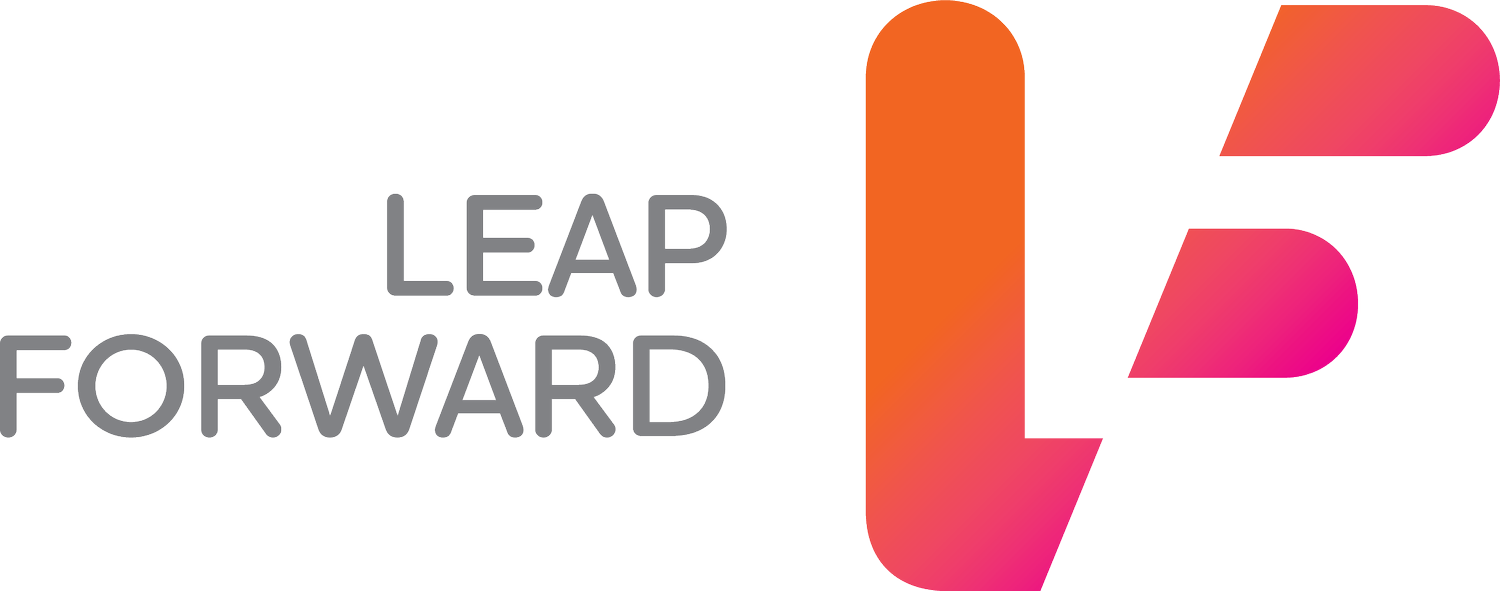Science & Research
The LeapForward team are committed to using proven, evidence-based approaches to inform how we design our program. We partner with leading academics and universities to ensure our approach is based on the latest research.
Our Research Partners
Explore a Research Collaboration
Fill in the form to express interest in conducting research together
The Science Behind LeapForward
-
Empowers individuals to accept their experiences, live mindfully, and commit to meaningful actions, fostering psychological well-being and resilience.
ACT is a form of psychotherapy that combines mindfulness, acceptance, and behaviour change strategies. It was developed in the 1980s by psychologist Steven C. Hayes and helps individuals accept their inner emotions and commit to making necessary changes in their behaviour, regardless of their feelings or life circumstances. The key aspects of ACT are:
Acceptance: Instead of avoiding, denying, or altering their emotions, clients learn to embrace the full range of their thoughts and feelings. Acceptance involves acknowledging that these deeper emotions are appropriate responses to certain situations and should not hinder progress in life.
Mindfulness: ACT encourages clients to be present in the moment, observe their thoughts and feelings without judgment, and develop emotional openness. Mindfulness helps individuals detach from unhelpful thought patterns and behaviours.
Values and Commitment: Clients identify their personal values and goals. They commit to making behavioural changes aligned with these values, even when faced with challenges or discomfort.
Psychological Flexibility: ACT aims to enhance psychological flexibility, which involves adapting thoughts and behaviours to align with values and goals. The six core processes promoting psychological flexibility are:
Acceptance: Acknowledging and embracing emotions.
Cognitive Diffusion: Reducing the impact of unhelpful thoughts.
Present Moment Awareness: Being fully present.
Self-as-Context: Recognizing that thoughts and feelings are transient.
Values Clarification: Identifying personal values.
Committed Action: Taking purposeful steps toward valued goals.
-
A type of therapy that helps people manage their thoughts, feelings, and behaviours. CBT empowers you to take control of your thoughts and feelings, leading to positive changes.
CBT focuses on how your thoughts, beliefs, and attitudes influence your emotions and actions. By understanding these connections, you can learn practical ways to change unhelpful patterns.
CBT is practical and goal oriented. It doesn’t dwell on the past; instead, it helps you solve current problems. In our program, you will learn to recognise negative thinking patterns and develop healthier habits.
CBT can help with emotional issues such as anxiety, depression, anger and stress.
It can also be effective in treating some physical problems such as chronic pain, migraines and insomnia.
-
The progressive goal attainment approach acknowledges that change takes time, and small steps can lead to significant transformations. This approach leads to incremental changes that build confidence, self-esteem and create long term health benefits.
The progressive goal attainment approach is a method for behaviour change that emphasizes gradual steps toward achieving desired outcomes. Here’s how it works:
1- Start with Small Goals: Instead of aiming for radical changes, break down the ultimate goal into smaller, manageable steps. These smaller goals serve as building blocks toward the larger objective.
2- Incremental Progress: Focus on making consistent progress over time. Each achievement, no matter how small, contributes to overall success. Celebrate these milestones to maintain motivation.
3- Behavioural Shaping: Shape behaviour by reinforcing positive actions. For instance, if someone wants to exercise regularly, they might start with a short walk and gradually increase the duration. Positive reinforcement (e.g., feeling good after exercise) encourages repetition.
4- Self-Monitoring: Keep track of progress. Use tools like journals, apps, or calendars to record achievements, setbacks, and adjustments. Self-monitoring enhances awareness and accountability.
5- Feedback and Adjustments: Regularly evaluate progress. If necessary, adjust the approach based on feedback. For example, if weight loss is the goal, adjust diet or exercise routines as needed.
6- Self-Efficacy: Cultivate self-belief. Recognize your ability to achieve goals. As you experience success, your confidence grows.
7- Adaptability: Be flexible. Life circumstances change, and goals may need adjustment. Adaptability ensures continued progress.





